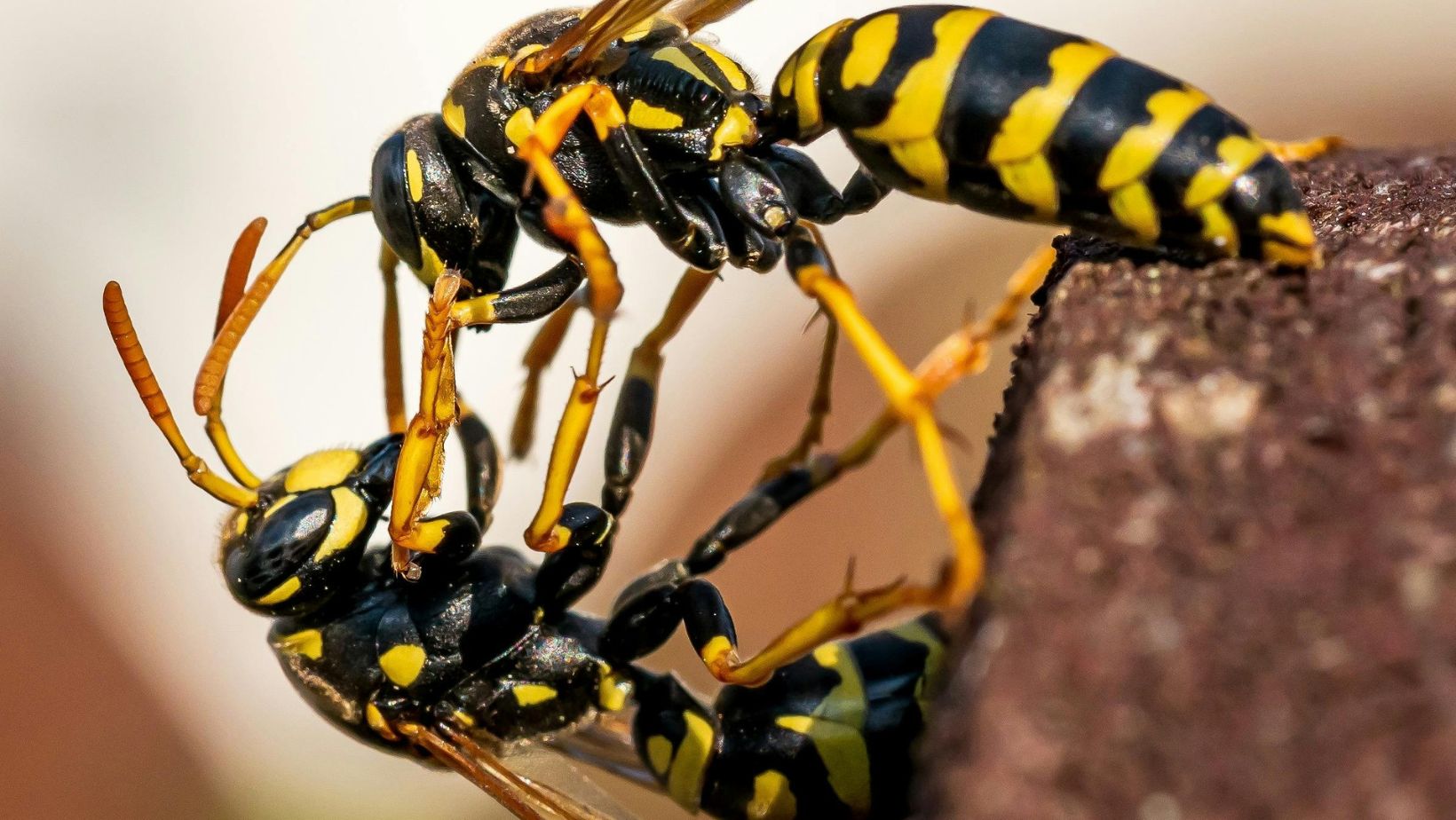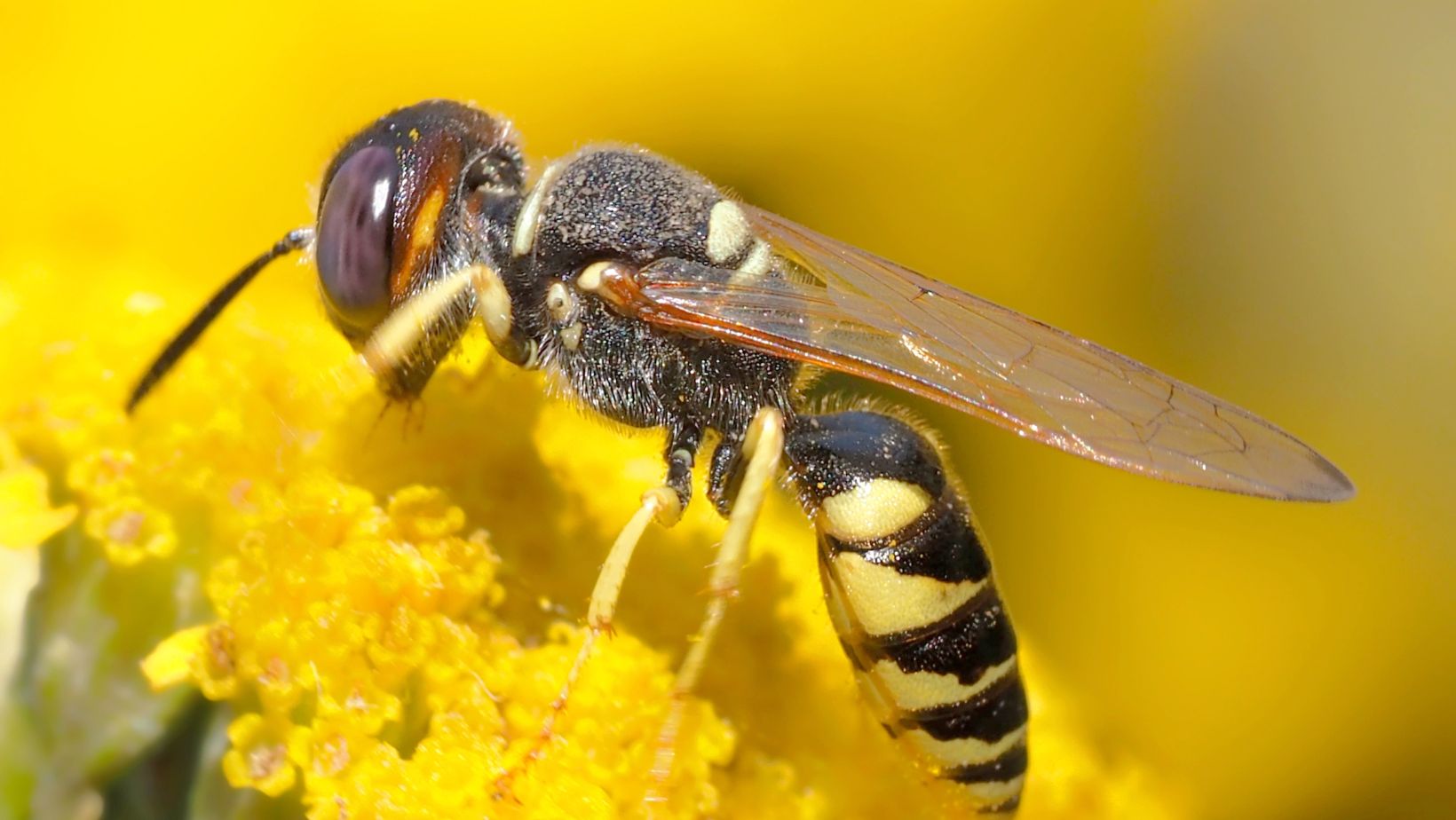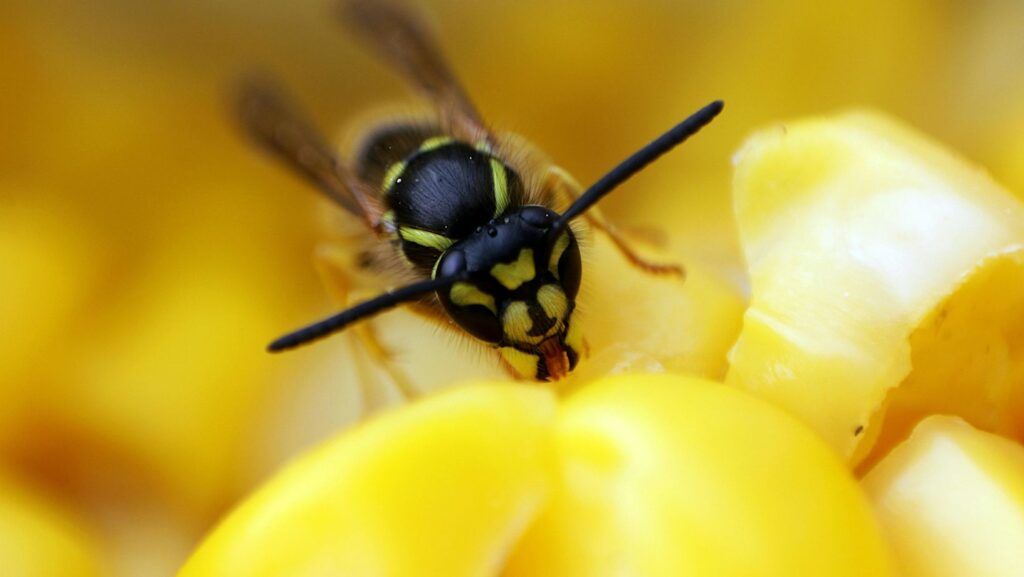Wasps are a common nuisance across the UK, particularly during the warmer months. Whether you’re dealing with a few persistent wasps in your garden or a full-blown nest in your loft, knowing how to get rid of wasps safely and effectively is crucial. Aside from being annoying, wasps can become aggressive, especially when their nest is disturbed, leading to painful stings and potential allergic reactions. In this blog, we’ll walk through practical, safe and proven ways to handle wasp problems at home or in commercial settings, and when it’s best to call in professional pest control.
Why Are Wasps a Problem in the UK?
There are several species of wasps in the UK, but the most common are the Common Wasp (Vespula vulgaris) and the German Wasp (Vespula germanica). These insects become especially active between May and September, building nests in sheltered locations like lofts, sheds, wall cavities, and under eaves.
Wasps are territorial and protective of their nest. While a single wasp might only be mildly annoying, a colony can contain thousands. This makes nests particularly hazardous, especially around homes, schools, and workplaces.
Signs You Have a Wasp Problem
Before deciding how to get rid of wasps, it’s important to confirm you’re actually dealing with a wasp issue. Common signs include:
- A high number of wasps around a specific area
- A visible nest in a roof space, wall cavity, tree, or shed
- A constant buzzing or humming sound in one area of the property
- Wasps entering and exiting the same hole or gap in a structure
Identifying the signs early can help you act before the nest becomes too large and dangerous.
How to Get Rid of Wasps Safely
- Never Swat at Wasps
Swatting at a wasp may seem like a natural reaction, but it can make them more aggressive. Wasps release pheromones when threatened, which alert other nearby wasps to attack.
- Locate the Nest (From a Distance)
Try to observe where wasps are entering and exiting. This will help you pinpoint the location of the nest. Only inspect during the daytime, when wasps are active, but never get too close without the right protection.
- Use Wasp Sprays (With Caution)
Wasp sprays can be effective for small nests that are easily accessible. These are best used late in the evening or very early morning when wasps are less active. Always wear protective clothing and have a clear escape route in case the wasps swarm.
- Set Up Wasp Traps
Wasp traps use sweet substances like sugar water or fruit juice to lure the insects in. These can help reduce numbers but won’t remove the nest. Place traps well away from seating areas to draw wasps away from people.
- Seal Entry Points
After ensuring the nest is treated or removed, seal up any access points in walls, roofs, or outbuildings. This prevents future nesting in the same area.
- Natural Wasp Deterrents
Peppermint oil is known to repel wasps. Mix with water and spray in areas where wasps are likely to gather. While not a guaranteed fix, it can help discourage wasps from lingering.
When to Call Professional Pest Control
Trying to remove a wasp nest yourself is risky, especially if the nest is large, hidden, or in a hard-to-reach place. Professional pest control services use protective gear and specialist treatments that destroy the nest and prevent reinfestation.
You should consider professional help for wasp control Epsom:
- You or someone in your household is allergic to wasp stings
- The nest is indoors or near a frequently used area
- The nest is large or there are multiple nests
- DIY methods have failed
Professional wasp removal is quick, safe, and often more cost-effective than multiple failed attempts at DIY solutions.
What Not to Do
- Don’t burn or flood a wasp nest. This is dangerous and may cause the wasps to scatter and sting.
- Don’t try to knock down a nest manually.
- Avoid using ladders to reach nests unless properly secured. A swarm can easily cause a fall.
- Don’t ignore the problem – nests can grow rapidly in summer.
Are Wasps Ever Helpful?
Interestingly, while wasps are often seen as pests, they do play a role in controlling other insect populations. They feed on flies, aphids and other pests, which can be helpful in gardens. However, this benefit rarely outweighs the risks of having a nest near human activity.
Preventing Future Wasp Problems
Prevention is always better than cure. Here are some simple tips to keep wasps away from your property:
- Cover food and drinks when eating outdoors
- Keep bins sealed tightly
- Regularly check roof spaces and garden buildings in spring
- Use wasp-repellent plants like mint and citronella in outdoor areas
- Install fine mesh on vents and window
Taking these steps early in the season (April–May) can stop wasps from establishing a nest in the first place.
Conclusion
Getting rid of wasps in the UK safely and effectively requires a mix of caution, timing and the right approach. For small, accessible nests, DIY methods may work if handled carefully. However, when dealing with large colonies or hard-to-reach areas, professional pest control is strongly recommended.
Removing wasps isn’t just about comfort — it’s about safety, especially for those at risk of allergic reactions. If you’re noticing an increase in wasp activity around your home or business, don’t wait until it becomes a bigger issue. Act early, stay safe, and make use of expert help when needed to keep your property wasp-free.

